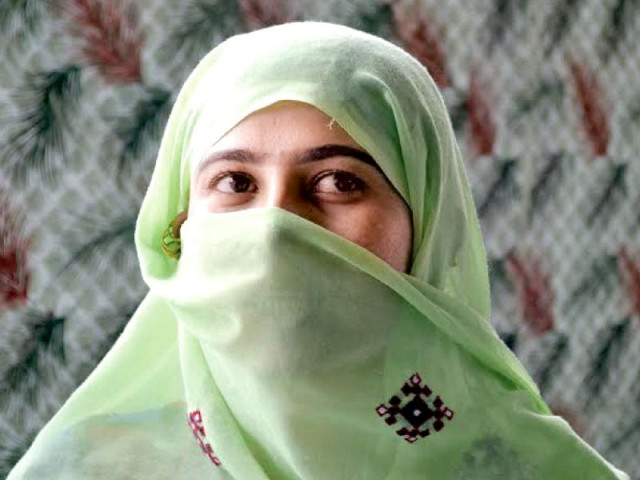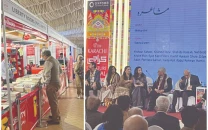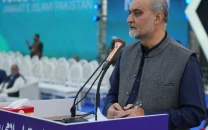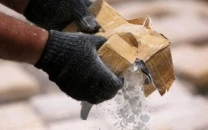The Baloch midwife
In this region, women generally avoid visiting hospitals for pregnancy, childbirth. Enters midwife, the lifesaver.

Rahat Noor. PHOTO: MAZHAR ALI CHANDIO/EXPRESS
In the underdeveloped region of Kech in Balochistan where houses are made from mud and straw, a young woman in her 20s is saving lives. She is Rahat Noor, a 26-year-old community midwife.
“Pregnant women usually avoid going to hospitals for checkups in Kech district,” said Noor, explaining why some babies here die before they are delivered or are born underweight. “This is a trend I have observed in Balochistan.”
According to the Pakistan Demographic Health Survey (PDHS 2012-2013), the proportion of mothers reporting that they received antenatal care from a skilled provider is markedly lower in Balochistan (31 per cent) than in Punjab and Sindh (78 per cent each).
Pakistan is lagging behind in its aim to achieve Millenium Development Goal (MDG) 5, regarding maternal health, making the role played by trained midwives from local communities so crucial.
Noor is one of the few such midwives available in the region. Trained in Turbat district, Noor says, “I received training three years ago but have yet to be provided with delivery kits, medicines and so on.” For this reason, Noor stayed home for two years after her training, unable to help women in labour. She was provided with equipment five months ago by the provincial health department. “Since then, I have helped hundreds of pregnant women,” she said with pride.
More than a hundred midwives live in Turbat; however, only 15 of them have been given delivery kits and medicines by the health department. “I wanted to help women in my area because they lack awareness and they do not know how important their healthcare is during pregnancy,” Noor explained.
The kits that can save lives contain very basic but life-saving items such as sterilised scissors, gloves, plastic sheets to avoid complications such as septicemia, a potentially life-threatening infection caused by bacteria entering the bloodstream. Anti-tetanus vaccines are a must too. Midwives must also be able to determine when to refer the woman to a doctor or hospital for further care.
Noor’s father has unequivocally supported her, although many of her relatives consider her profession inappropriate. She juggles family life with work, and is married to a police officer in Turbat. “My husband is proud of what I do,” she says.
Noor has been shortlisted as one of the final five nominees for the ‘2014 International Midwife Awards’. The ceremony will take place in Prague from June 1st to 5th. She is the only nominee from Pakistan amongst five nominees from other parts of the world. The International Confederation of Midwives (ICM), together with Save the Children, recognizes and rewards two midwives for excellent work towards survival of newborns. This year, the awards will be held for the fourth time.
“I am so happy to know that my work has received recognition,” Noor told The Express Tribune. She has been awarded Rs25,000 by Provincial Health Minister Rehmat Saleh Baloch for her outstanding work in midwifery.
Provincial Director Maternal Child Health Nabeela Sultan said that there is a dearth of skilled midwives. “It is a good thing that midwives are a great help in Balochistan but this is not enough in order to decrease the maternal mortality rate in the province.” She said that Lady Health Visitors are more trained than community midwives. “Community midwives mostly get training for 15 days only.”
Sultan was of the view that there is an unavailability of gynaecologists in state-run hospitals of Balochistan. “The government did claim that it appointed 20 gynaecologists at District Headquarter Hospitals. I still believe there is a lot to be done.” The director said that healthcare is not in good shape in this area.
Published in The Express Tribune, April 23rd, 2014.



















COMMENTS
Comments are moderated and generally will be posted if they are on-topic and not abusive.
For more information, please see our Comments FAQ